Today’s post comes from Sarah McMichael, Ontario Parks’ Healthy Parks Healthy People Coordinator.
Backcountry camping is known for being a way to experience beautiful, serene landscapes. But a backcountry trip also provides an opportunity to challenge yourself physically and mentally.
The combination of paddling, portaging, and hiking through the backcountry is a great all-over workout. Plus, you will experience a ton of health benefits simply by being outdoors.
Hit the backcountry for a killer total-body workout this summer. Let’s do this!
Portage your way to better strength
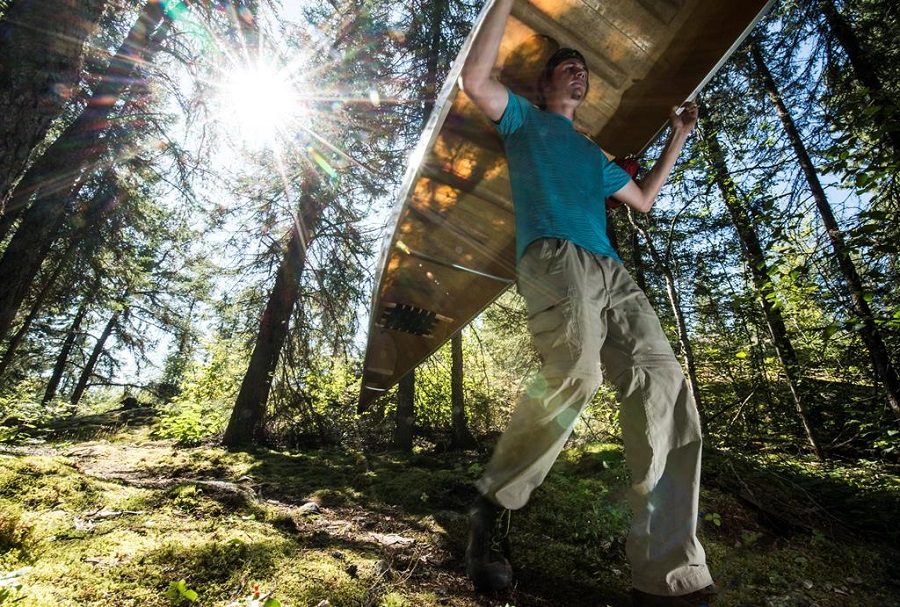
Your backcountry workout starts with portaging. Portaging can be very challenging physically, but just as rewarding. Between canoes, backpacks, and food barrels, you could easily be carrying over 45 kg of gear on your own each time you portage.
Portaging will work your lower body as you maneuver through rocky, potentially uneven trails while carrying your gear to make it to your next paddling spot. Balancing canoes and other heavy items over rugged terrain will improve your balance as well.
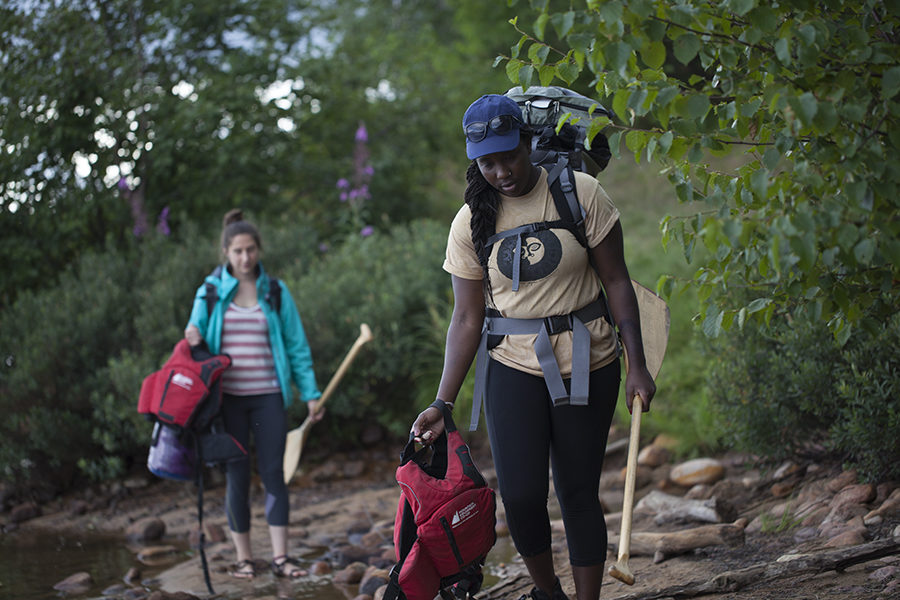
Your arms and shoulders will get a workout too, as you lift heavy gear over your head and onto your shoulders.
If you are someone who is not very active in the winter, make sure you prepare for your first trip of the year by doing some exercises before heading out. You can easily wear yourself out if you’re not in proper shape. Try going for short jogs, lifting weights, and doing pushups and sit ups.
Paddling for health
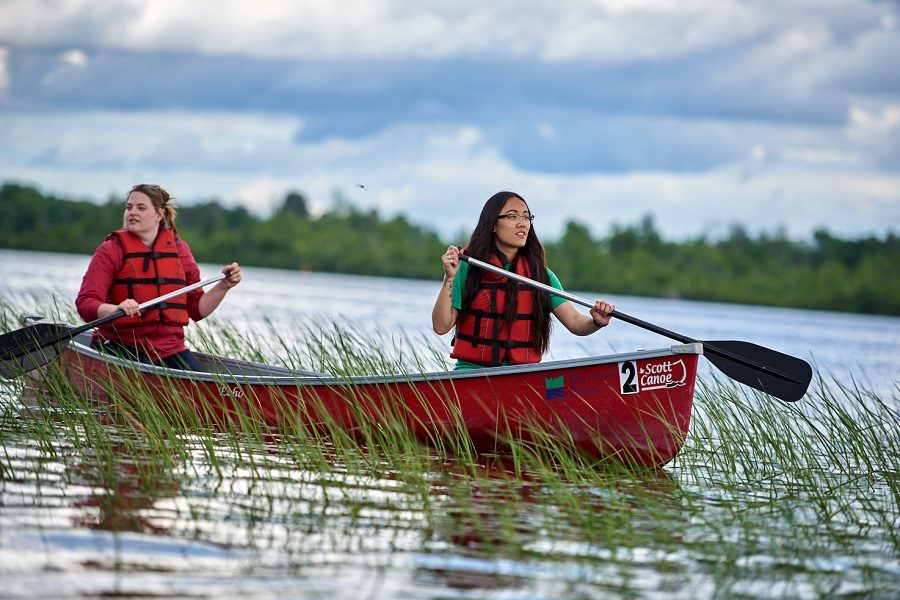
Because of the long distances of backcountry trips, you end up paddling quite a bit. Luckily, paddling is good for your body in a lot of ways.
Paddling is a full upper-body workout. You’ll increase muscle strength in your back, arms, shoulders, and chest from moving the paddle against the natural resistance of the water. You’ll also increase your core strength every time you paddle forward, and use those muscles to stay steady in your canoe.
Paddling is a low-impact activity, which reduces the risk of wear and tear on joints compared to many other activities. Paddling is also a great exercise to elevate the heart rate and improve cardiovascular health.
Benefits of being outdoors

During your backcountry trip, you’ll also experience a myriad of brain and body health benefits just by simply being outdoors.
Camping in nature takes us away from common daily stresses like traffic, work, and noise pollution. Instead, we are exposed to relaxing landscapes and stress-reducing sounds like waves, rushing rivers and bird songs.
We’ve always known that fresh air is good for us, and what better way to get your dose of fresh air than on a backcountry trip?
Spending more time in nature means breathing in more oxygen and less pollution. Your body functions with less strain when there’s plenty of oxygen. The extra oxygen also causes your body to release serotonin, which is considered a contributor to feelings of well-being and happiness.
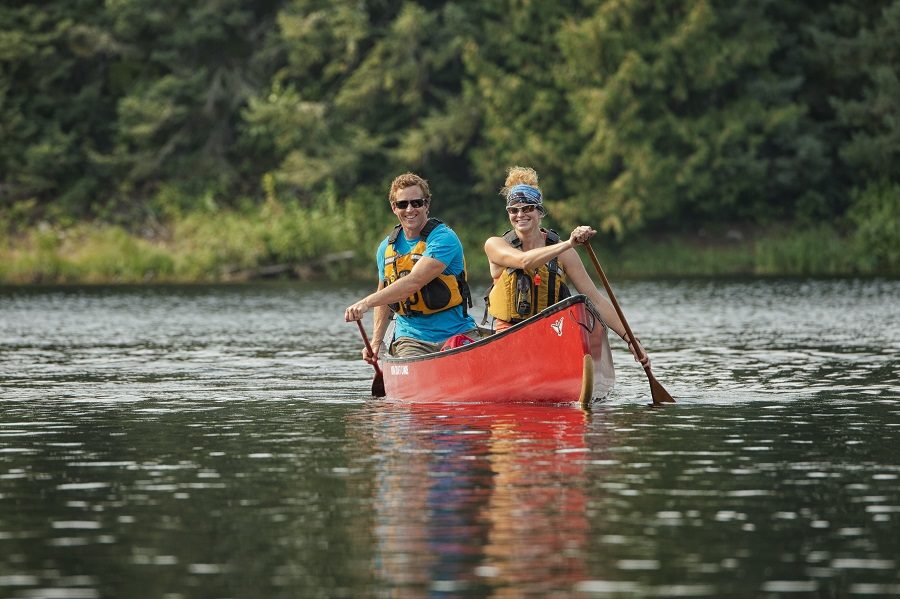
Don’t forget to soak up the sun! Research has shown that Vitamin D may help protect against multiple diseases, is important for normal growth and development of bones and teeth, and may even help ward off some forms of cancer. Pair your under-the-sun time with skin protection, like hats, sunglasses and sunscreen.
Lastly, you can catch some major Zs while in the backcountry. Sleeping away from artificial light and waking up with natural sunlight can reset your circadian rhythm, which will help you feel refreshed after a better night’s sleep.
Don’t forget to take care of yourself!
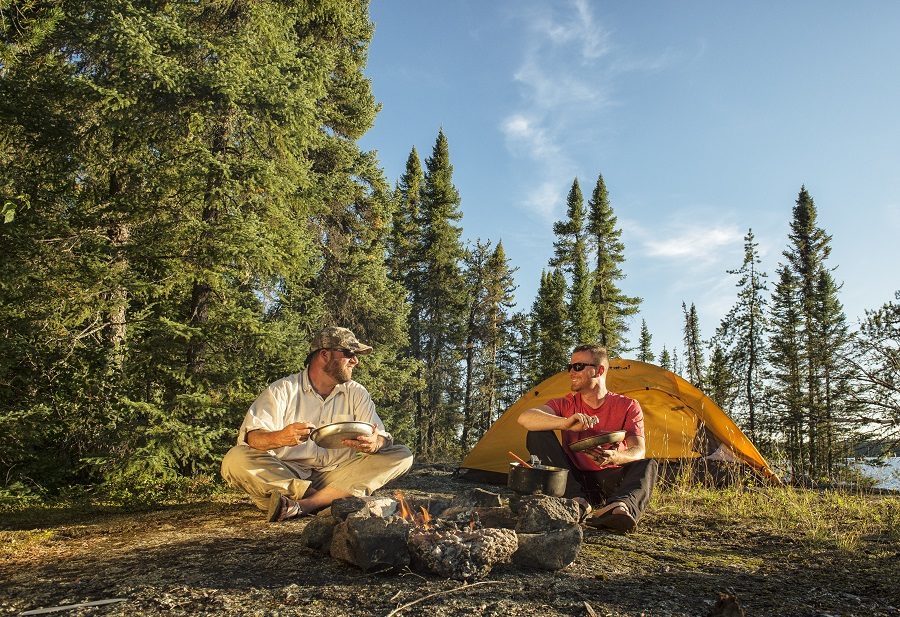
Backcountry camping is a challenging adventure, but with this exciting experience comes a whole range of important precautions to keep you safe and healthy during your trip.
You’ll definitely work up an appetite from all of the portaging and paddling. Pack enough food to keep your energy levels up throughout your trip. You also need to make sure you have enough water to keep you hydrated.
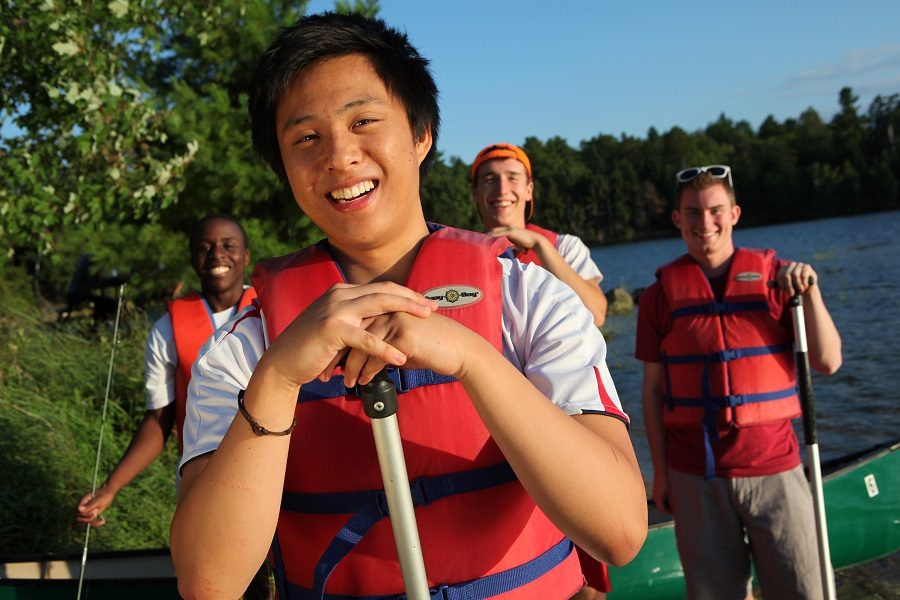
Make sure you are prepared for all of the possible hazards and emergencies that can occur in the backcountry. Pack maps, compass, PFDs, and a First Aid kit.
If you’re prepared for trip, you can better keep yourself and your fellow campers safe in the backcountry.
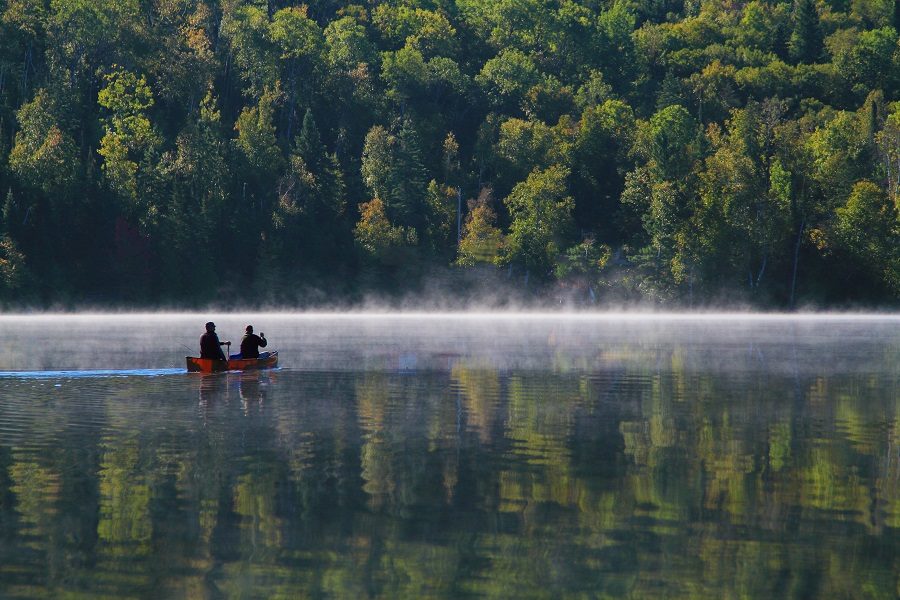
At the end of the day, nothing is more rewarding than putting your body to the test to reach unbelievably beautiful landscapes in the backcountry.
